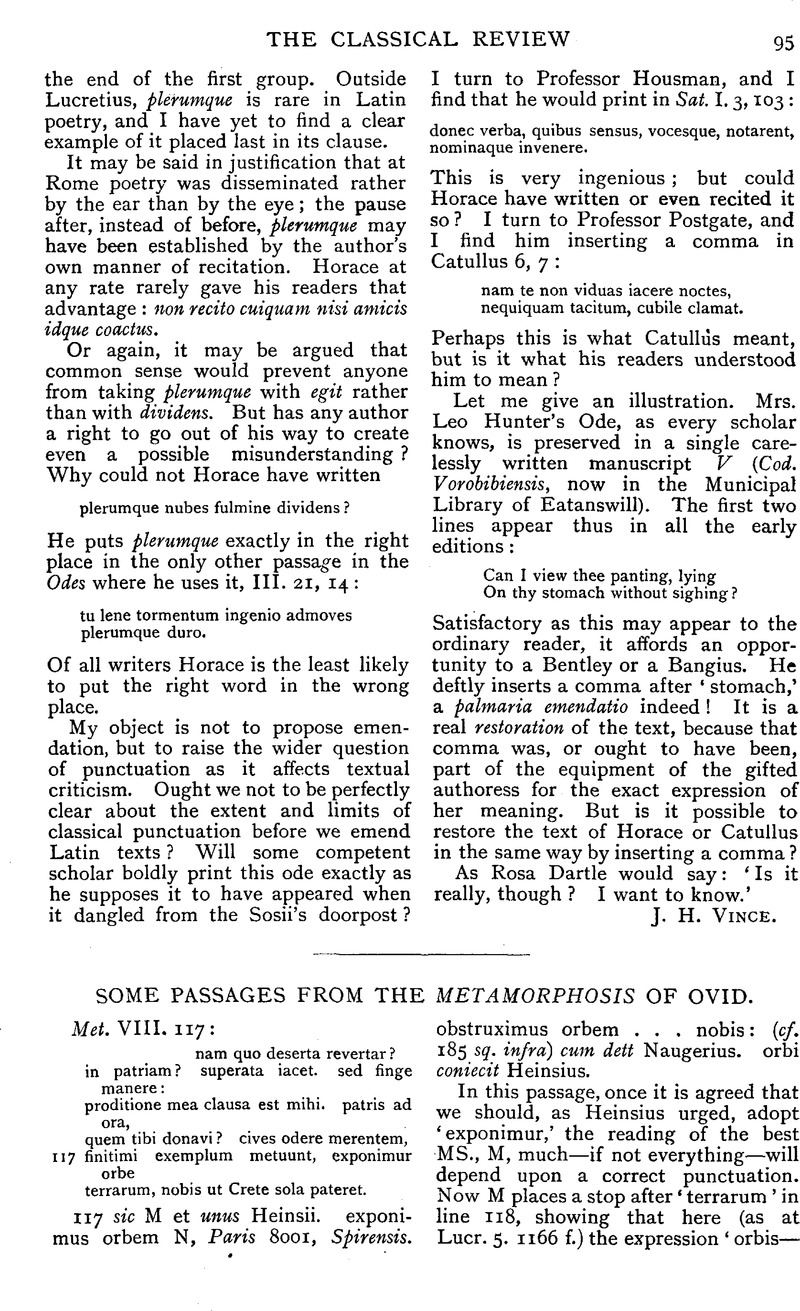No CrossRef data available.
Article contents
Some Passages from the Metamorphosis of Ovid
Published online by Cambridge University Press: 27 October 2009
Abstract

- Type
- Original Contributions
- Information
- Copyright
- Copyright © The Classical Association 1920
References
page 96 note 1 This device is more frequent in the Horatian than in the Ovidian Hexameter. Cf. Hor. S. i. 2. 62 ; 9. 51; ii. 3. 117 and 179; Ep. ii. 2. 93 and 188 ; A.P. 290 and 424. Here it seems to me to help most effectively the ascending scale : ‘cives—finitimi—orbis !’ The ‘overflow’ is in every sense of the word momentous. It is akin to the fine ‘hypermeters’ in Horace, C. 2. 3. 27; 3. 29. 35 f., and Vergil, Aen. 4. 625. With the authority of the best MS. behind it, is not to be gainsaid.
page 96 note 2 Elisions of the type ‘finitimi exemplum’ are rare in the Met..—1 in 1000 lines about—a minor point in a difficult problem, but nevertheless worth weighing.
page 96 note 3 Cf. Prop. 2. 3. 42, ‘Hie dominam exemplo ponat in arte meam.’
page 96 note 4 Notae Latinae (Cambridge, 1915), p. 426.
page 97 note 1 Compare with the corrupt line (317a) in M ‘venit Athalantis cenei pulcherrima virgo’ the words of Apollodorus loc. cit. ![]() , from which one might conceivably conjecture that the line should run Schoenëis | Atalanta venit, etc. ; cf. Am. 1. 7. 13.
, from which one might conceivably conjecture that the line should run Schoenëis | Atalanta venit, etc. ; cf. Am. 1. 7. 13.
page 97 note 2 See Book XI.
page 97 note 3 o = c. So the scribe of Harley MS. 2610 gives Ovid's name on his first page as P. C. Naso.
page 98 note 1 Cf. 29 adflabitur ; 104 efflant. At 8, 289 Planudes renders ‘adflatu’ by the same word, ἄσθματι.
page 98 note 2 Nero 37. The letters e and f are repeatedly confused in the Met.
page 98 note 3 Cf Housman on Juvenal 8. 7, and for a similar interpolation in Sophocles, Ajax 771, where the expression δίας Ἀθάνας repeated from 757 would seem to have ousted the true text.




